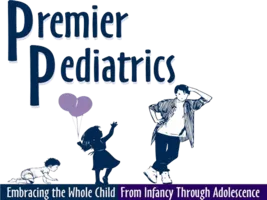Acne: Make it go away!
- posted: Aug. 28, 2017
Many teens and young adults suffer from acne. This is due to hormonal changes that increase oil production in the skin leading to blockage of hair follicles. In research studies, food has not been found to have a major influence on acne, although some individuals might be more sensitive to certain foods.
There are several types of acne including blackheads, skin colored comedones, red inflammatory acne, and nodulocystic acne. Nodulocystic acne can lead to permanent scarring without treatment. Acne can be present on the face, chest, shoulders, and back.
Keeping the skin clean can be helpful. It is not possible to “scrub acne away”. In fact, scrubbing the skin can make acne more inflamed. Gentle application of soap to absorb the oil followed by gentle rinsing of the skin is best.
Despite these measures, some people will need medical treatment for their acne. Your child’s pediatrician is equipped to treat all forms of acne except for nodulocystic acne which can be treated by a dermatologist. Your pediatrician can help diagnose the type of acne and recommend the most appropriate treatment. Improvement in acne is usually seen within 4-6 weeks of starting treatment and it is often necessary to continue treatment for 1-2 years to prevent further outbreaks. Most acne treatments can make a person much more sensitive to the sun, so it is critical to use sunscreen.
Have concerns about acne? Schedule today for an evaluation!
